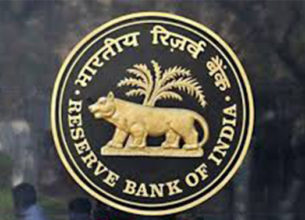TIME TO PRIORITISE EDUCATION AND HEALTH
31, Jan 2020

Prelims level : Economics – Growth and Development
Mains level : GS-III Indian Economy and issues relating to planning, mobilization of Resources, Growth, Development and Employment.
Why in News?
- In the backdrop of current economic slowdown, few eminent economists have been prescribing investments in human capital formation in order to spur growth and counter the slowdown.
Background Info:
- To counter the economic slowdown the government is attempting to spur demand by increasing the private consumption expenditure.
- Accordingly a number of steps taken by the government include
- Corporate tax rate cut
- Investment in infrastructure inclusion National Infrastructure Pipeline
- Setting up of Alternate Investment Fund in the Housing Sector.
- Higher spending in MGNREGA etc.
- The policy currently being pursued by the government is intended primarily to incentivise potential investors by facilitating ease-of-doing-business and making large-scale concessions to the corporate sector including tax cut.
- Despite of these efforts, there is little evidence of any significant increase in investment by the private sector to boost consumption expenditure.
- There are few who argue that the government must implement labour market reforms, remove constraints on land acquisition, accelerate investments in physical infrastructure mainly transport and energy to boost consumption expenditure.
The Way Around:
- Alternatively few of the eminent economists prescribe increased social sector spending particularly on education and health in order to counter slowdown.
- They suggest this as it have 2-fold Effect Including:
1.Human Capital Formation
2.Increased Demand as a result of improved employment in education and health in the form of new recruitments of healthcare professionals, teachers, improved infrastructure etc. (Counters Economic Slowdown)
Importance of Investments in Education and Health:
- Investments in social sector are grossly underfunded as the target to invest in education is 6 per cent of GDP whereas in Health the target as per the National Health Policy is to invest upto 2.5 per cent of GDP.
- Thus the increased public expenditure in social sectors in the magnitudes required for meeting the constitutionally mandated objectives can have short- and medium-term effect of enhancing employment, generating demand and attracting investment.
- Investments in health and education will serve two main objectives:
- 1.It will boost human capital – efforts of humans
- 2.It can counter economic slowdown
- In the field of education, primarily by investing in teacher recruitment and building school infrastructure. Thus, recruitment of 5.7 million additional teachers over a period of five years, can create huge scale demand. And, this is only one factor essential for universalising quality school education.
- There is also a large gap between requirement of infrastructure in the schools and that available and built recently.
- According to government data, only 12.5% of the schools covered by the RTE Act were compliant with RTE norms, most of which are related to infrastructure. Meeting these norms has the potential of creating employment on a large scale.
- Education has a crucial role to play for an individual in Gaining Employment and Retaining Employability.
- In the field of health, there is a huge deficit of paramedical workers, middle-level health workers, nurses and trained doctors.
Conclusion:
- Health and education are of instrumental value in driving growth, creating employment and improving people’s well-being is widely recognised but often forgotten when it comes to making investment in these sectors.
- The government has a well-entrenched policy of Encouraging Privatisation in both health and education. But, privatisation in these sectors has not led to efficiency or improvement of quality.
- It has only destroyed public sector institutions, promoted greater inequality and pushed the poor out. The gestation period of projects in social sectors is not as long as it is considered.
- It is therefore time for reprioritising education and health in the scheme of development strategy and the allocation of budgetary resources so as to counter current economic slowdown and also build strong infrastructure necessary in the fields of health and education.











